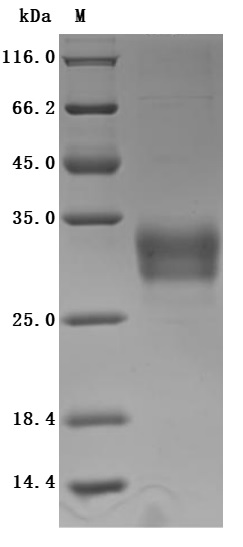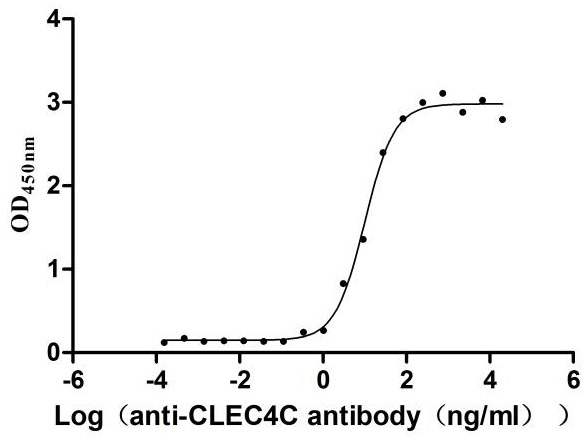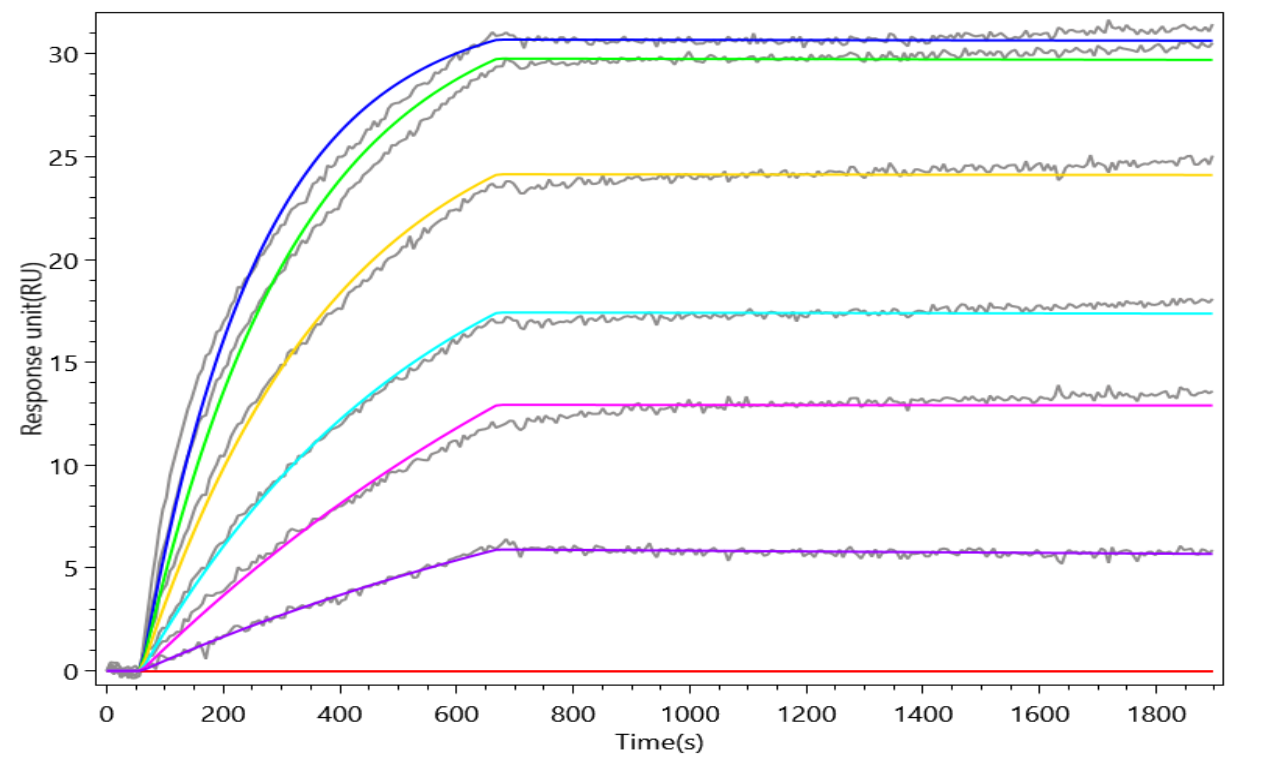Recombinant human CLEC4C protein is generated through a mammalian cell expression system. The human CLEC4C gene fragment (45-213aa), coupled with an N-terminal 6xHis-tag gene, is integrated into a plasmid vector and then introduced into mammalian cells. Post-transfection, the cells undergo cultivation to facilitate protein expression. The resultant recombinant human CLEC4C protein is verified for purity exceeding 95% via SDS-PAGE. Its endotoxin content, measured using the LAL method, is confirmed to be under 1.0 EU/ug, ensuring high quality. The protein's interaction capability is evaluated using CLEC4C recombinant antibody (CSB-RA855470MA1HU), with the EC50 of 7.658-12.99 ng/mL.
CLEC4C is a novel plasmacytoid dendritic cell (pDC)-specific type II C-type lectin that mediates antigen capture and serves as an effective inhibitor of interferon-alpha/beta induction. It can also efficiently target ligands for antigen processing and peptide loading compartments to present to T cells. As the sole receptor expressed on pDCs, CLEC4C can reduce the production of inflammatory cytokines, including IFN-I, playing a significant regulatory role in the pathogenesis of lupus. In autoimmune diseases, beyond systemic lupus erythematosus, conditions like Sjögren's syndrome, alopecia areata, vitiligo, and polymyositis are also associated with CLEC4C. High levels of CLEC4C+ pDCs have been identified in muscle fibers of patients with polymyositis, dermatomyositis, and other inflammatory myopathies. CLEC4C exhibits significant potential for the treatment of these diseases. Therefore, developing active CLEC4C protein can aid in clinical drug development and testing.









